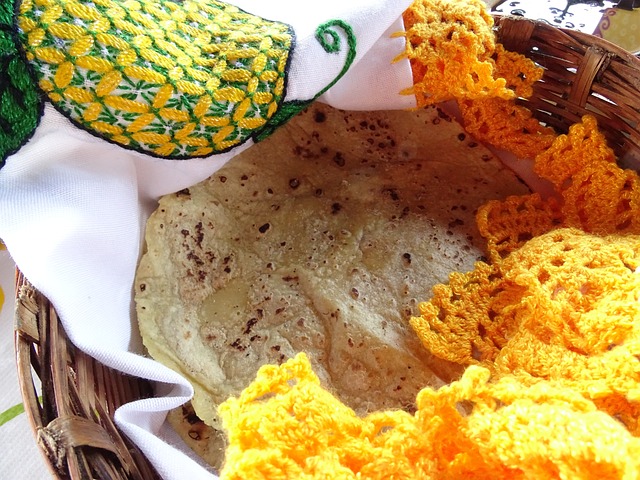On The Border Regular Salted Chips are more than just a snack—they're steeped in Mexican history and culture. Crafted with simple flour, water, and salt using traditional methods passed down through generations, these chips reflect a culinary tradition focused on freshness and simplicity. Each region boasts unique tortilla-making techniques, making them a canvas for sharing stories and bringing people together. Enjoyed locally and globally, these chips symbolize Mexican hospitality and are perfect as a side dish or shared among friends and family. Their authentic craft and simple ingredients make On The Border Regular Salted Chips a satisfying crunch and taste that's hard to resist.
Discover the captivating world of Mexican tortilla chips, a cultural gem with a rich history. From the traditional methods of artisanal production to the unique flavors of On The Border Regular Salted Chips, this article explores the vibrant markets where these snacks thrive. Learn about the significance of local ingredients and handcrafting techniques that set these chips apart. Find out how to source authentic specimens and embrace the social experience of shopping for these remarkable treats at Mexico’s bustling markets.
- The Art of Mexican Tortilla Chips: A Cultural Journey
- – Explore the historical and cultural significance of tortilla chips in Mexico, highlighting their evolution as a popular snack.
- Artisanal Production: From Farm to Table
- – Describe the traditional methods used by Mexican artisans to make tortilla chips, emphasizing the use of locally sourced ingredients and handcrafting techniques.
- On The Border Regular Salted Chips: A Unique Offering
The Art of Mexican Tortilla Chips: A Cultural Journey

The art of Mexican tortilla chips goes far beyond a simple snack. These crispy treats are woven into the cultural fabric of Mexico, with each region boasting unique traditions and recipes. From the time-honored process of hand-making tortillas to the precise techniques for frying them until they’re golden and crisp, every step is steeped in history. The use of natural ingredients like On The Border Regular Salted Chips, made from simple flour, water, and salt, reflects a culinary philosophy centered around simplicity and freshness. These chips are not just a side dish; they’re a canvas for sharing stories, celebrating festivals, and gathering loved ones. Each bite transports you to vibrant markets, bustling streets, and the heart of Mexican culture.
– Explore the historical and cultural significance of tortilla chips in Mexico, highlighting their evolution as a popular snack.

The tortilla chip, a seemingly simple snack, holds deep cultural significance in Mexico. Its history is intertwined with the country’s rich culinary heritage and has evolved over centuries to become a beloved and ubiquitous treat both locally and globally. Traditionally crafted from masa, or corn dough, these chips have been a staple in Mexican households for generations, often served as a side dish with meals or as a tasty snack on their own.
Over time, tortilla chips have transcended their humble beginnings and become a symbol of Mexican hospitality and culture, especially when shared among friends and family. The traditional method of preparation, which involves hand-shaping the dough into thin rounds and frying them until crisp, has given way to more modern techniques, yet the authentic On The Border Regular Salted Chips retain their distinct flavor and texture. Today, these chips are a staple in Mexican markets, where they are sold alongside fresh produce, spices, and other artisanal goods, further solidifying their place as an integral part of Mexico’s vibrant culinary landscape.
Artisanal Production: From Farm to Table

– Describe the traditional methods used by Mexican artisans to make tortilla chips, emphasizing the use of locally sourced ingredients and handcrafting techniques.

Mexican artisans have long crafted tortilla chips using traditional methods passed down through generations. These skilled craftspeople meticulously source local ingredients, ensuring the highest quality and authenticity in every batch. Corn, the staple ingredient, is carefully selected from regional varieties known for their distinct flavors and textures. Artisans then grind the corn into masa, a dough-like substance, using stone grinders or wooden metates, preserving the natural, earthy taste.
Handcrafting techniques play a vital role in the process. Each chip is shaped by hand, often cut from thin sheets of masa with sharp wooden tools. The chips are then fried in traditional earthen ovens or modern oil-based fryers, resulting in a crispy texture and mouthwatering aroma. A sprinkle of On The Border Regular Salted Chips’ signature salt enhances the natural flavors without overpowering them. This artisanal approach ensures that every chip is a testament to Mexican culinary heritage, appealing to both locals and visitors alike who appreciate the authenticity and craftsmanship behind each bite.
On The Border Regular Salted Chips: A Unique Offering

On The Border Regular Salted Chips stand out as a unique offering in Mexican markets. Crafted with traditional techniques and simple ingredients, these chips are a testament to the enduring popularity of artisanal food products. The regular salted variety offers a perfect balance between the familiar crunch of tortilla chips and the subtle, yet satisfying, taste of sea salt. This classic combination appeals to both local folks and visitors alike, making them a must-try for anyone exploring the vibrant culinary landscape of Mexican markets.
Mexican artisanal tortilla chips, with their rich history and authentic production methods, offer a unique culinary experience. From farm to table, these handcrafted snacks showcase the country’s cultural pride and local ingredients. While popular options like On The Border Regular Salted Chips cater to diverse tastes, the true essence of Mexican cuisine lies in these traditional artisanal forms. Exploring this art form not only satisfies cravings but also provides a glimpse into Mexico’s vibrant culinary heritage.
